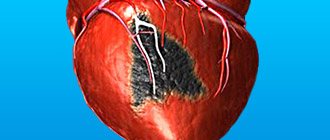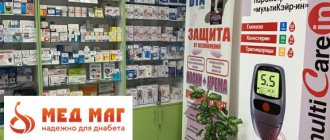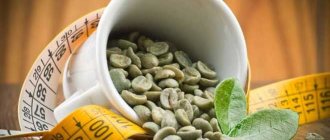Coffee is one of the favorite products that can give vivacity and energy for a long time. Many people are so used to starting their day by drinking it that they wonder, is it possible to drink coffee before donating blood? Indeed, for diagnosing health, this type of research is fundamental in establishing the presence of a particular disease.
What does fasting mean?
Unfortunately, when doctors prescribe various blood tests to their patients, they do not always explain in detail about fluid intake, warning only about abstaining from eating food. Therefore, most people perceive such understatement from the perspective of “what is not prohibited is permitted,” and on the eve of the examination they may drink a lot of not only water, but also other drinks. And this is fraught with obtaining unreliable results.
As usual, doctors, warning patients that tests must be taken on an empty stomach, imply that no nutrients should enter the body before the procedure. As a rule, the recommended time for fasting is at least 8-12 hours, which is easiest to do at night, since it is much more difficult to fast during the day. Therefore, blood tests are taken mostly in the morning.
At the same time, most patients, when preparing for a scheduled diagnostic procedure and remembering the preparation rules, do not deprive themselves of a glass of water or a cup of traditional morning coffee. That is, they do not see this as a violation of medical recommendations, explaining it as the need to quench thirst or to cheer up as usual.
The main problem is that some people interpret the concept of “fasting” literally, namely, abstaining from eating food for some time. However, you need to know the following - everything that is not ordinary water is perceived by the body as food, since almost all liquids contain a certain amount of nutrients.
In other words, it does not matter much in what form proteins, fats, carbohydrates and other active biochemical components are contained. After all, they can be included in solid dishes or dissolved in various types of liquids. As a result of metabolic reactions, nutrients entering the body are transported first into the blood and then into the tissues.
So, for example, juices (even sour ones) and kvass contain a lot of carbohydrates, and, in particular, glucose, which will certainly affect blood sugar tests. Tea and coffee do not contain carbohydrates, proteins and fats, but they are rich in biologically active substances and alkaloids, for example, tannin and caffeine, which can trigger an increase in the production of digestive enzymes and hormones.
Milk and all fermented milk products contain a large amount of proteins and fats. Even seemingly harmless herbal decoctions (chamomile, mint) can trigger excessive production of biologically active substances, which will certainly affect a certain number of blood parameters.
All of the above means that no drink is neutral in relation to the body, since it is a “supplier” of various active substances and is capable of changing the composition of the blood. This is why you should not take anything other than water before a blood test.
Hormone analysis
When a biochemical blood test for hormones is required, preparation should not include deviations from medical recommendations. Basic Rules:
- The studies are carried out at identical times to obtain the most accurate dynamics of results, strictly on an empty stomach.
- Tea or coffee is out of the question. You can only drink clean water, and this is mandatory - only in this way will the analysis reflect the person’s real hormonal level, and the blood viscosity will decrease, making the procedure less tiring.
- On the day before the collection, stop eating heavy food and 12 hours before the test - stop smoking.
- Avoid stressful situations for 24 hours before the test.
- A full 8-hour sleep the night before is required; you should come to the laboratory no later than two hours after waking up.
- Women donate blood for hormones between 5 and 8 days of the cycle, but if there is no such restriction, the gynecologist will warn the patient about this.
Effects of alcohol
As for drinks that include alcohol, their effect on the body is much larger. Therefore, it is recommended to abstain from consuming alcohol-containing products for at least 1-2 days before donating blood. The fact is that alcohol not only contains carbohydrates and other nutrients, but significantly affects the activity of the cardiovascular system, as well as the excretory system, in particular the kidneys.
This is necessarily reflected in the composition of the blood. Therefore, abstaining from alcohol for the above-mentioned period is completely justified, and directly on the day of the blood sampling procedure itself, drinks containing alcohol are strictly prohibited.
Drinking coffee before taking blood from your finger
You can drink coffee before donating blood from your finger, if this does not contradict medical recommendations. And only if you plan to conduct a general analysis. The coffee drink should not contain additional components: sugar, milk or honey. They may affect the reliability of the data obtained.
A detailed examination will require the patient to abstain from caffeine. Since its components distort the composition of the blood, and this entails distortion of the results of their research. The same applies to the presence of identified pathologies in the medical history that exclude coffee from the patient’s diet.
What about water?
The list of specified restrictions on the intake of liquids reasonably leads to the question: “Can I drink water?” Indeed, ordinary, boiled clean water is an absolutely neutral substance.
In a number of certain situations, the use of clean drinking water can cause distortion of test results. This mainly depends on what type of blood test is prescribed for the patient. Without knowing this parameter specifically, it is impossible to give a definite answer to the question regarding drinking water before the blood donation procedure.
Water consumption for different types of tests
Blood tests are carried out using a wide range of different techniques to evaluate its various characteristics. The most common include the following list of tests, including:
- general (clinical),
- biochemical,
- for sugar
- for hormones
- serological,
- immunological.
Based on the characteristics of each study, rules for preparation are determined, which include a point regarding water intake.
General analysis
The most common and at the same time simplest type of diagnosis is a general blood test. Thanks to it, the absolute and relative amounts of blood cells are assessed.
Naturally, the water that the subject drinks is not able to change these indicators of the main body fluid. Therefore, one or even two glasses of water, consumed on the eve of the procedure or a couple of hours before the collection of biomaterial, are quite acceptable.
It is also not considered a violation if the patient drinks a little water immediately before donating blood, which is especially true for young children who are difficult to ask to be patient. But we must not forget the main condition - it must be exclusively pure drinking water (not mineral), containing absolutely no impurities, sweeteners, flavors, and preferably non-carbonated.
Biochemical
With other types of examinations the situation is a little more complicated. Biochemical analysis, or so-called blood biochemistry, is performed to determine the levels of various compounds. Therefore, if patients drink too much fluid, it can usually lead to a change in the balance between substances present in the body's environment, the result of which is sure to affect the chemical composition of the blood.
However, the likelihood of significant deviations from the norm if the subject drinks a few sips of ordinary still water an hour before taking the sample is minimal. But no more than 30-50 ml. People who are being examined for diseases of the urinary tract should adhere to a particularly strict prohibition on drinking water.
For sugar
An equally tough approach to diagnosing blood sugar. This analysis is performed strictly on an empty stomach, without any exceptions. It must be remembered that a significant amount of water drunk on the eve of the test or shortly before it can also distort the results of the analysis.
If a person, before going to the clinic to take a sample of biomaterial, moistens his dry throat with a small amount of ordinary water, nothing terrible will happen, and this will not affect the reliability of the study in any way.
Serological, immunological and hormone analysis
There are serious restrictions on the consumption of various liquids, including clean water, even before such studies as, for example, HIV and hormones. While diagnosis by serological, immunological and tests for tumor markers does not require strict restrictions, but drinking liters of water is not follows.
Coffee before stool test
Clarify what exactly the analysis is for. If this is an analysis to determine pinworms and worm eggs, caffeine can be safely consumed in any usual doses, it does not affect anything.
If the gastrointestinal tract is examined, you will have to give up coffee.
- Coffee can often cause stomach upset and change the consistency of stool.
- If you drink an unfiltered drink, grounds may get into the stool, it provokes the release of mucus, scratches the intestinal walls, which is why there may be foreign impurities in the stool.
- Coffee, especially instant coffee, can darken the color of stool.
Advice from laboratory technicians
As mentioned above, any drinks other than simple clean water affect the body as complex reagents. By their appearance, they can trigger entire chains of a wide variety of mechanisms in the human body.
And chemical reactions will cause noticeable changes in the composition of the blood, so not just any water is allowed to drink, and it is better to familiarize yourself in detail with the effect of each drink on the processes of the body. Of course, all Moscow laboratory workers explain the intricacies of preparing for tests, but this is easy to do on your own after reading the materials collected in this article.
Do not forget that the correct approach to the preparatory process will ensure reliable results, provide the doctor with enough information to make a diagnosis, and save the patient from having to return to the laboratory to give a sample. So, below is a list of drinks and their effect on the body.
Plain water without gas
Before visiting the laboratory, it is recommended to drink clean water (not mineral and non-carbonated), with the exception of biochemical analysis (drinking is prohibited). This will make it easier for the laboratory worker to draw blood. You can drink water directly in line at the treatment room.
Considering that in most cases, tests are prescribed in the morning, and during night sleep the body loses some of the fluid through breathing, restoring the water balance is required. If you don't drink some water, the blood will become more viscous and may clot in the test tube. This sample will not be suitable for testing and the patient will need to return to the laboratory.
Sparkling water
The bubbles in sparkling water are nothing but carbon dioxide (CO2). There is a special enzyme in the blood - carbonic anhydrase, the action of which is aimed at ridding the body of excess carbon dioxide produced due to respiration.
A change in the amount of respiratory enzymes due to the consumption of carbonated water will certainly affect the biochemistry of the blood. Therefore, if blood is taken from a person who drank soda, the test result will be inaccurate.
Mineral water
Table mineral water also contains carbon dioxide, and also contains almost the entire periodic table - calcium, chlorine, magnesium, sodium, iron, bicarbonates, sulfates, etc. Each of these elements affects biochemical processes in the body, as a result of which mineral water is prohibited for consumption before certain types of tests.
Coffee and tea
Many people know about the effect of caffeine on the human body - it increases performance, improves the quality of positive conditioned reflexes, activates brain activity, etc. All this occurs as a result of many complex biochemical reactions, which will invariably affect the diagnostic results. Therefore, the answer to the question “is it possible to drink coffee and tea before tests?” It will definitely be “no”.
Alcohol
The impact of alcohol on the biochemical processes of the body is several times greater than that of caffeine. For example, it reduces the ability of blood to clot. To avoid errors in tests, it is better to avoid even a small portion of alcohol on the eve of taking a blood sample.
Juices
Due to the fact that any juice (even vegetable) contains a lot of glucose and fructose, which are quickly absorbed, blood sugar rapidly rises. In a healthy person, the glucose concentration increases after the intake of all carbohydrates without exception, which leads to distortion of the study results.
When can you drink coffee?
Before taking a blood test, you are allowed to drink coffee later than 10 hours before the scheduled time of collection. Typically, such procedures are carried out early in the morning, so you can safely allow yourself to drink a cup of your favorite drink in the evening. And then - at the time indicated by the doctors after donating the blood material (about 2 hours after the procedure).
There are no restrictions on the consumption of the drink when conducting the following studies:
- determination of blood clotting rate;
- identification of autoimmune pathologies;
- determination of hemoglobin level;
- determination of electrolyte levels;
- diagnosis of infectious mononucleosis.
If the material is taken as planned, then the doctor’s instructions must be strictly followed (so as not to donate blood again). And if it’s an emergency, then the amount of food eaten and drunk the day before doesn’t really matter.
You should approach taking tests with all responsibility. This will help significantly save time: you won’t have to carry out the procedure twice or three times if you get incorrect results. In addition, an accurate diagnosis can be made faster, which means treatment can begin faster.
General recommendations
In this regard, there are other subtleties regarding various methods of collecting biomaterial. A significant part of medical experts say that before the procedure of taking blood from a vein, the patient needs to drink several glasses of water. Otherwise, that is, if you abstain from drinking, in their opinion, difficulties may arise in collecting a sufficient amount of blood for diagnosis.
If a person is in doubt about the volume of liquid allowed for consumption, then in any case the best option would be to ask the doctor who issued the referral for the test.
On the other hand, do not forget about a reasonable approach to any situation. So, for example, it is not recommended to drink a lot of water if you are not thirsty. In the same way, there is no need to suffer from the desire to satisfy it if it is too hot outside or indoors.
You should not expose your body to artificially generated stress, as this can distort test results to a much greater extent than one glass of ordinary water, drunk as needed, or refusing an extra portion of liquid.
Coffee before urine test
Caffeine is excreted through the kidneys and genitourinary system, so its presence can affect certain indicators and also cause increased diuresis, that is, more fluid will be excreted. In addition, coffee can cause urine color to change, making it darker.
As a rule, a urine test is collected in the morning, which means you can abstain from caffeine in the first 10-15 minutes from the moment you get up, and drink your favorite drink later, when you have collected the required amount of urine. If urine is collected throughout the day, then it is better to abstain from caffeine-containing drinks for the entire period.











